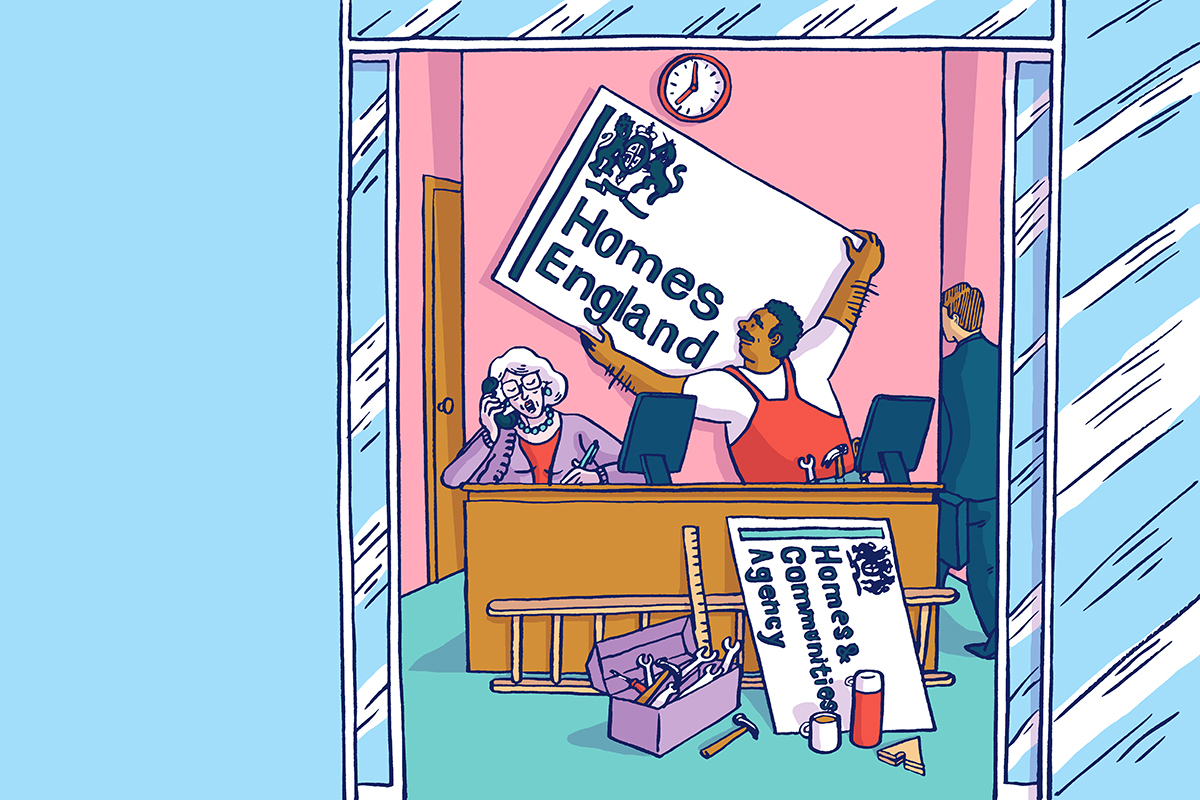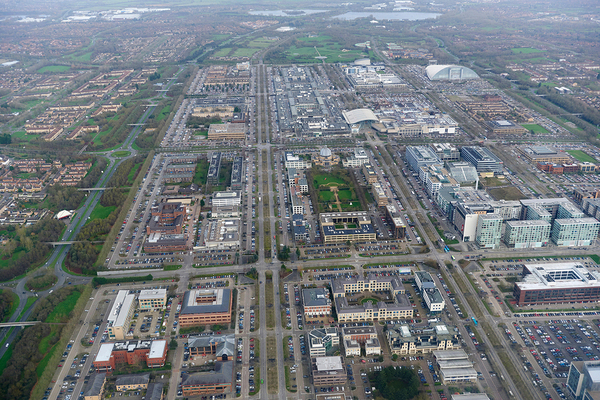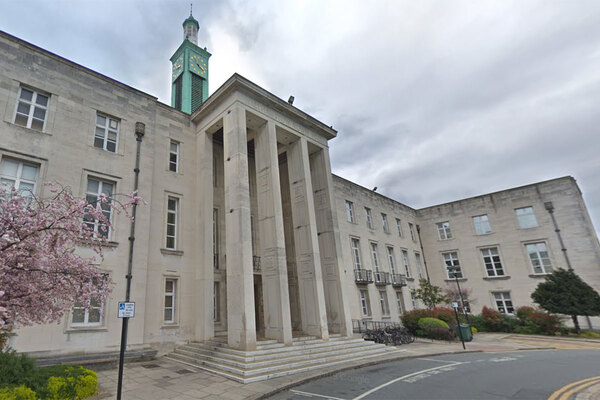 Jules Birch
Jules BirchWhat we learnt from the new MHCLG ministerial team’s first appearance before MPs
Ministers from the rebranded department took questions in parliament yesterday. Jules Birch looks for clues as to whether we are likely to see a change in approach
It’s got a new name and new ministers but how much has really changed at the Ministry of Housing, Communities and Local Government (MHCLG)?
Yesterday’s MHCLG questions marked the first time Sajid Javid and his new team have faced MPs since the reshuffle earlier this month.
Judging from the housing secretary’s first few responses, the answer seemed to be not much.
His exchanges with his Labour shadow John Healey over the painfully slow progress on replacing unsafe tower block cladding have already been widely reported.
According to the latest figures, 312 buildings have been tested and 299 have failed, but cladding has been taken down and replaced on just three.
“How has it come to this?” asked Mr Healey. “Seven months on from Grenfell, only one in four families who are Grenfell survivors has a new permanent home. The government still cannot confirm how many other tower blocks across the country are unsafe. Ministers still refuse to help to fund essential fire safety work when they know that blocks are dangerous.”
Mr Javid said the number one priority was to make sure that anyone living in a tower that might have similar cladding feels safe and the government was ensuring measures were in place.
But he also struggled with the question of funding, sticking to a formula that has become all too familiar: “The government will consider providing financial flexibilities for local authorities to undertake essential fire safety work to make buildings safe. We have not turned down any requests for such flexibilities.”
“If the MHCLG has not turned down any requests for fire safety funding, it has not granted any yet either.”
Up to Christmas 36 local authorities had contacted the department that is now a ministry about fire safety work – but, if it has not turned down any requests, it has not granted any yet either.
Councils that have made requests include Birmingham City Council, which is asking for financial support to make 213 tower blocks safe. Asked about this later, Mr Javid said: “We have received further information and we are working on it with Birmingham right now.”
The secretary of state was also asked about the position in private blocks after two recent cases in which freeholders had sought to pass on the costs to leaseholders.
Asked about the Cityscape block in Croydon, where leaseholders face bills of £31,000 each to replace cladding, Mr Javid said: “The responsible person is clearly the freeholder. Whatever the legal case might be, the freeholder should take responsibility.”
And he added that the housing minister (I assume the new one, Dominic Raab) had spoken to the company involved “and is engaged in a dialogue to try to see what we can do to ensure that it does the right thing”.
At the heart of the issue is who is liable for the unsafe cladding being there in the first place.
“Tenants and leaseholders are ultimately being asked to pay directly or indirectly via cuts to repairs budgets, despite having no say in the decisions.”
So should it be the owner of the building, the designer who specified the cladding or the contractor who carried out the work? But what if the work was carried out in accordance with building regulations?
The answer so far seems to be none of the above – with tenants and leaseholders ultimately being asked to pay directly or indirectly via cuts to repairs budgets, despite having no say in the decisions.
Confusion over what the building regulations really say on fire safety was raised by cladding contractors in Inside Housing and it was the crux of the question asked by Labour’s Clive Betts, chair of the Communities and Local Government Committee.
Mr Betts said: “I want to refer to Approved Document B of the building regulations and the guidance contained within it. Paragraph 12.7 specifically prevents the use of combustible material in the insulation of high-rise buildings. Will the secretary of state confirm that the guidance is a lot less clear about cladding and appears to allow for the continued use of combustible materials in the cladding on high-rise buildings? If so, is the secretary of state comfortable with that situation?”
Mr Javid said: “I do not think that is still the case.” This was why he had accepted the interim recommendations of the review by Dame Judith Hackitt in full.
That not-exactly categorical answer reveals, I think, the sensitivity of the issue for the ministry. The review has not (yet) really addressed the ambiguity between the regulations and the guidance.
Elsewhere at MHCLG questions, it was a similar story of continuity with the familiar answers given by new members of the cast.
The housing minister continued to resist calls for the borrowing cap on council housing to be raised, despite a call for exactly that from the all-party Treasury Committee.
“We are not going to take on Labour’s plans in this area or any other, because frankly they are not sustainable,” said Dominic Raab.
This despite the fact that the housing ministry itself was a Labour plan and that it has just done a U-turn on a Labour MP’s ‘Fitness for Habitation’ bill.
“Mr Raab managed to avoid his predecessor’s tendency to blur ‘affordable’ and ‘social’.”
The new housing minister showed some signs that he is still getting used to his new brief, at one point telling MPs that “a lot of social housing is of a co-operative nature. It particularly depends on any given community’s specific needs, which are often for the local authorities to help to identify”.
In what was perhaps one tangible sign of change at the new ministry, he managed to avoid his predecessors’ tendency to blur ‘affordable’ and ‘social’, saying that “we are restless to deliver more affordable homes, including for social rent”.
However, normal service was resumed with his pronouncement that the Conservative record “speaks for itself”.
This involved the traditional claim to have delivered more ‘affordable’ homes than Labour, followed by this: “We are also creating a stable financial envelope for local authorities and housing associations with long-term rent deals: the settlement is CPI [Consumer Price Index] plus 1%. That is the sustainable way to drive homebuilding in this country.”
Social landlords who were forced to cut their rents by 1% a year after a previous 10-year deal was scrapped after just two years may be forgiven a wry smile at that.
MPs continued to ask questions about rising homelessness in their constituencies and continued to be offered assurances about the Homelessness Reduction Act and Housing First.
Making her debut here was Heather Wheeler, the replacement for Marcus Jones.
Significantly, questions about the rise in rising rough sleeping came not just from London, but from MPs representing other big cities including Warwick and Leamington, Darlington, Torbay, Caerphilly and Wolverhampton.
As the minister repeated pledges to halve rough sleeping by 2022 and eliminate it by 2027, the fact that it has doubled in so many places since 2010 is an indication of the scale of the task ahead.
“Questions about the rise in rough sleepers came not just from London but from MPs representing other big cites.”
Finally, perhaps the most interesting question for the long term came from Nick Boles, a former planning minister when the ministry was a department and author of a recent book calling for radical changes in policy.
Mr Javid had recently attended the launch of a new All-Party Parliamentary Group on New Towns, he said, and would know that they were only created because they were able to acquire land at valuations close to its current use.
“That is no longer possible, because of the Land Compensation Act 1973,” said Mr Boles. “Among his many admirable ambitions for housebuilding in this country, will he agree to look at the act and the possibility of reforming the valuation of land that is acquired?”
Mr Javid’s answer was carefully neutral: “I will commit to looking at the issue he raises and point him to some of the work we have already done, including an amendment in the Neighbourhood Planning Act 2017 which allows the secretary of state to designate planning zones.”
As he must know, the planning changes made so far are not going to cut it.
What happens next on this will be one of the main tests of whether his new outfit is serious about housing being at the top of its agenda.
Thanks in no small part to that 1973 legislation, no new towns have been designated since the last time it had ‘ministry’ and ‘housing’ in its name.
Repealing it would be a great way to celebrate the new name.
Jules Birch, award-winning blogger












